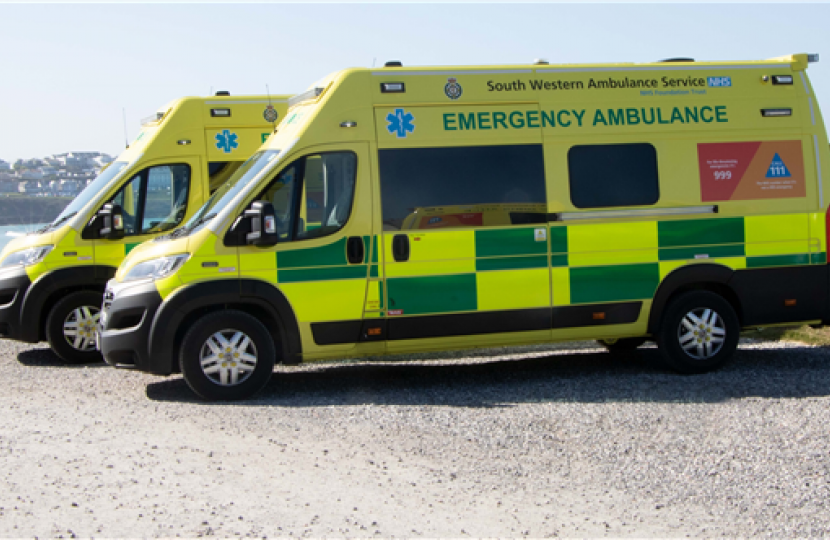
This week the Government published a package of interventions to help the NHS deal with new pressures on urgent and emergency care services. Given the scale of the pressures after the pandemic, healthcare systems around the world and across the UK are facing difficulties. A few months ago, the Government announced an additional £14 billion for the NHS to increase capacity and reduce waiting times.
There was a spike in flu cases over Christmas, with in-patient flu admissions 100 times that of the previous year and a sevenfold increase in December, so the government announced £250 million of immediate funding on 9 January for the pressures this winter, giving the extra capacity to emergency departments to tackle the issue of patients who are fit to leave hospital but are delayed in doing so.
The plan announced this week will increase capacity with 800 new ambulances on the road, of which 100 are new specialized mental health ambulances. This comes together with funding to support 5,000 new hospital beds, as part of the permanent bed base for next winter. This additional capacity in both ambulances and beds should deal with some of the worst problems we see at A&E where ambulances find they can't admit a patient so can't get back on the road to the next job.
Secondly, the government is recruiting additional staff. Staff shortages in the NHS and in social care have been a key part of the problem. We have already recruited more than 30,000 nurses since 2019 and there are another 20,000 being recruited now. The NHS will publish its long-term workforce plan this year. The government is also boosting capacity and staff in social care, supported by an investment of up to £2.8 billion next year and £4.7 billion in the year after.
Thirdly, there is a focus on speeding up the discharge of patients who are ready to leave the hospital, including by freeing up more beds with the full roll-out of integrated care transfer hubs. In Cornwall, there have been some good examples of bringing unused hospital wards back into operation to offer temporary nursing care for patients that are ready to be discharged from the hospital but need some support before they are able to return home. We need more of this sort of facility in Cornwall particularly with elderly patients.
Getting the NHS back on an even keel as it struggles with the aftermath of the pandemic is a key priority for the Government. Although the NHS budget has increased by around 80 percent over the last ten years, the demands, and expectations on it have also grown which is why it continues to experience pressures but the new funding and plans to increase capacity announced this week will go some way to help.

